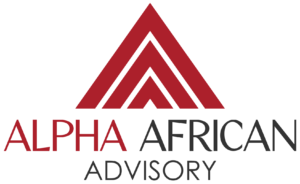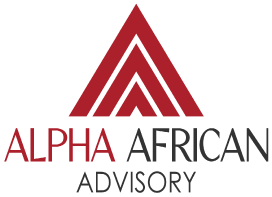
Borrowing abroad could kill your business- Here’s why Nigerian SMEs need a reality check
Small and medium enterprises (SMEs) are the heartbeat of Nigeria’s economy, yet they’re facing an alarming funding crisis. According to IFC estimates, Nigerian SMEs have a staggering $32.2 billion unmet credit demand, marking access to finance as their number one hurdle. Shockingly, Nigeria’s private sector credit-to-GDP ratio has languished around 12.4% over the past decade, far behind major African economies like South Africa, Egypt, and Morocco. PwC further highlights this funding crisis, revealing that only 25% of total loans go to MSMEs, with most capital concentrated in medium-sized enterprises.
This funding drought has been intensified by a dramatic 50% drop in investors within the African investment ecosystem (Partech, 2023), and further aggravated by Nigeria’s recent economic upheavals- floating exchange rates, subsidy removals, and soaring interest rates.
Given Nigeria’s macroeconomic realities, investors are seen shifting more towards debt funding due to its potential for higher and more immediate returns. This shift, coupled with the fact that available domestic credit mostly benefits large corporations, leaving SMEs underserved as highlighted earlier, has pushed SMEs to be increasingly tempted by foreign debt due to quicker access and seemingly attractive terms. But foreign borrowing isn’t a silver bullet; it carries enormous risks, particularly in Nigeria’s volatile economic climate.
However, this is not without its own unique set of challenges, which will be explored below.
The deadly trap of foreign debt
Many Nigerian firms, both SMEs and large corporates, with exposure to foreign debt are facing mounting financial pressure; they are buckling under foreign debts. The crux of the crisis? A fatal mismatch: borrowing in foreign currency while earning primarily in Naira. Between June 2023 and June 2024 alone, Nigeria’s Naira depreciated by roughly 100%. This means companies must now earn at least twice their previous income in naira just to service the same debt.
In simple terms, manageable foreign debts have overnight ballooned into crippling obligations.

Table 1: Monthly average official exchange rate
Source: Central Bank of Nigeria
In light of this, Nigerian MSMEs should consider these critical factors before borrowing in foreign currency:
- Exhaust all local funding options first
Before turning abroad, rigorously explore local financing alternatives such as bank loans, microfinance, DFIs, angel investors, venture capital, equity finance, and government-backed initiatives. Aligning debt repayments with your revenue currency (Naira) reduces vulnerability to currency volatility.
- Assess your revenue streams
Understand the currency in which your business earns. Companies operating in dollar-based sectors, like tech firms serving international clients, can better manage dollar debts as their income naturally hedges currency risks. But SMEs primarily earning in naira should be cautious and diversify revenue sources. Take Iroko TV, for instance, a Nigerian video-on-demand platform, initially focused on providing paid Nigerian films to African viewers, Iroko TV has strategically pivoted to target audiences in the United States and other international markets.
- Evaluate your existing foreign currency exposure.
SMEs importing raw materials or machinery should critically assess existing currency exposures. Additional foreign debt could exponentially increase operational costs during currency fluctuations, severely straining cash flow and profitability.
- Seek professional guidance
Now is the time to act. Take an honest look at your debt load and ask if it’s working for or against your business. If the red flags are there, consider reaching out to professionals who can help you navigate a restructuring before it’s too late.
Seek professional advisory firms like Alpha African Advisory to structure loans, align repayment terms with cash flows, evaluate hedging strategies, and pinpoint the most viable funding sources. Strategic advice can be the difference between growth and disaster.
Waiting until the eleventh hour could be fatal – but a timely course correction can be your company’s lifeline to a stronger future.
For companies with existing foreign currency debt, the following could be done:
- Conduct a comprehensive review of foreign currency exposure.
- Where possible, consider refinancing foreign currency debt into naira-denominated obligations.
- If unable to fully refinance existing foreign currency debt, explore hedging options. Forward contracts, currency swaps, options, or natural hedging can help mitigate the risk of further currency depreciation.
- Develop a robust restructuring plan that outlines how to improve financial position and meet restructured debt obligations. This may include operational changes, asset sales, or new revenue strategies.
- Consider debt-to-equity swap to reduce interest burdens and align creditors’ interests with the company’s long-term success.
- Negotiate for extended debt maturities to provide more time for financial recovery and reduce immediate repayment pressures.
- Prioritise cash flow management.
Foreign debt might promise fast cash, but in Nigeria’s uncertain economic climate, it can quickly become a business death sentence. Nigerian SMEs must critically evaluate their financial strategies because the right funding choice today could determine whether your business thrives or dies tomorrow. Again, assess your debt position now, and take steps to restructure and renew your business’s financial health.







Lawal
Quite insightful.